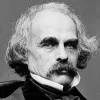Madame de Tencin said that intelligent people often erred in their conduct because they could never believe that the world in general is as stupid as it is.
[Mme de Tencin disait que les gens d’esprit faisaient beaucoup de fautes en conduite, parce qu’ils ne croyaient jamais le monde assez bête, aussi bête qu’il l’est.]
Nicolas Chamfort (1741-1794) French writer, epigrammist (b. Nicolas-Sébastien Roch)
Products of Perfected Civilization [Produits de la Civilisation Perfectionnée], Part 2 “Characters and Anecdotes [Caractères et Anecdotes],” ¶ 715 (1795) [tr. Merwin (1969)]
(Source)
(Source (French)). Alternate translations:Mme de Tencin said that people with spirit make many mistakes in their actions because they never believe that society is brutish enough, as brutish as it is.
[tr. Siniscalchi (1994)]Madame de Tencin said that many very clever people made social blunders because they could never believe that society was quite as stupid as it really was.
[tr. Parmée (2003), ¶382]The great mistake made by intelligent people is to refuse to believe that the world is as stupid as it is.
[Forbes]
Quotations about:
social
Note not all quotations have been tagged, so Search may find additional quotes on this topic.
IDIOT, n. A member of a large and powerful tribe whose influence in human affairs has always been dominant and controlling. The Idiot’s activity is not confined to any special field of thought or action, but “pervades and regulates the whole.” He has the last word in everything; his decision is unappealable. He sets the fashions of opinion and taste, dictates the limitations of speech and circumscribes conduct with a dead-line.
Ambrose Bierce (1842-1914?) American writer and journalist
“Idiot,” The Cynic’s Word Book (1906)
(Source)
Included in The Devil's Dictionary (1911). Originally published in the "Devil's Dictionary" column in the San Francisco Wasp (1885-08-29).
Psychiatry is all biological and all social. there is no mental function without brain and social context. To ask how much of mind is biological and how much social is as meaningless as to ask how much of the area of a rectangle is due to its width and how much to its height, or how much of the phenotype is due to genes and how much to environment.
Leon Eisenberg (1922-2009) American psychiatrist and medical educator
“The social construction of the human brain,” American Journal of Psychiatry (Nov 1995)
(Source)
None but the well-bred man knows how to confess a fault, or acknowledge himself in error.
Benjamin Franklin (1706-1790) American statesman, scientist, philosopher, aphorist
Poor Richard (1738 ed.)
(Source)
What are the American ideals? They are the development of the individual for his own and the common good; the development of the individual through liberty, and the attainment of the common good through democracy and social justice.
Louis Brandeis (1856-1941) American lawyer, activist, Supreme Court Justice (1916-39)
“True Americanism,” speech, Faneuil Hall, Boston (1915-07-05)
(Source)
Piety practised in solitude, like the flower that blooms in the desert, may give its fragrance to the winds of heaven, and delight those unbodied spirits that survey the works of God and the actions of men; but it bestows no assistance upon earthly beings, and however free from taints of impurity, yet wants the sacred splendour of beneficence.
Samuel Johnson (1709-1784) English writer, lexicographer, critic
The Adventurer, #126 “Praises of Solitude”
(Source)
The virtues of society are the vices of the saint. The terror of reform is the discovery that we must cast away our virtues, or what we have always esteemed such, into the same pit that has consumed our grosser vices.
Ralph Waldo Emerson (1803-1882) American essayist, lecturer, poet
“Circles,” Essays: First Series (1841)
(Source)
It contributes greatly towards a man’s moral and intellectual health, to be brought into habits of companionship with individuals unlike himself, who care little for his pursuits, and whose sphere and abilities he must go out of himself to appreciate.










